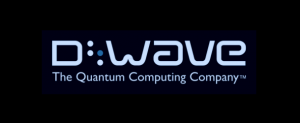Quantum News Briefs June 7: D-Wave Extends Agreement with Aramco to Explore Quantum-Powered Optimization of Geophysical Problems • Cleveland Clinic, IBM & Hartree Centre Utilize AI & Quantum Computing to Advance Healthcare & Life Sciences • In Other News: “UK ban on quantum computer exports is pointless, say researchers • Study Reveals when Photons Collide, They Create Vortices That Could Improve Data Processing

News Briefs:
D-Wave Extends Agreement with Aramco to Explore Quantum-Powered Optimization of Geophysical Problems
 D-Wave Quantum Inc., announced June 6 that it has extended its agreement with Aramco, a global integrated energy and chemicals company, to manage geophysical optimization problems through quantum technologies.
D-Wave Quantum Inc., announced June 6 that it has extended its agreement with Aramco, a global integrated energy and chemicals company, to manage geophysical optimization problems through quantum technologies.Cleveland Clinic, IBM & Hartree Centre Utilize AI & Quantum Computing to Advance Healthcare & Life Sciences

Cleveland Clinic, IBM and the Science and Technology Facilities Council’s (STFC) Hartree Centre in the UK have announced an innovative collaboration aimed at advancing healthcare and biomedical science through advanced computing technologies, including artificial intelligence (AI) and quantum computing, according to a Cleveland Clinic announcement.
“This partnership will play an important role in advancing research into the use of cutting-edge computation in healthcare and life sciences,” said Alessandro Curioni, IBM Fellow and Director, IBM Research Zurich.“We look forward to working with researchers from Cleveland Clinic London and the Hartree Centre to explore promising areas of discovery across quantum computing, AI and beyond.”
In Other News:
In Other News: New Scientist’s “UK ban on quantum computer exports is pointless, say researchers

Quantum computing experts are baffled by the UK government’s new export restrictions on the devices, saying the restrictions make little sense according to June 6 New Scientist. The legislation applies to both existing, small quantum computers that are of no practical use and larger computers that don’t actually exist, so cannot be exported. Instead, there are fears the limits will restrict sales and add bureaucracy to a new and growing sector.
The technology has been added to a list of “dual use” items that could have military uses maintained by the Export Control Joint Unit, which scrutinizes sales of sensitive goods, according to a March 2024 article by The Telegraph. A national quantum computer strategy published last year described the technology as being “critically important” for defense and national security and said the UK was in a “global race” to develop it. […] The changes have been introduced as part of a broader update to export rules agreed by Western allies including the US and major European countries.
Quantum computer exports only previously required licenses in specific cases, such as when they were likely to lead to military use. Oxford Instruments, which makes cooling systems for quantum computers, said last year that sales in China had been hit by increasing curbs. James Lindop of law firm Eversheds Sutherland said: “Semiconductor and quantum technologies — two areas in which the UK already holds a world-leading position — are increasingly perceived to be highly strategic and critical to UK national security. This will undoubtedly create an additional compliance burden for businesses active in the development and production of the targeted technologies.
In Other News: Study Reveals when Photons Collide, They Create Vortices That Could Improve Data Processing
 Researchers from the Weizmann Institute of Science’s Physics of Complex Systems Department set out to look for an efficient way of using photons to process data in quantum computers and found something unexpected: They realized that in the rare event that two photons interact, they create vortices. Not only does this discovery add to the fundamental understanding of vortices, it may ultimately contribute to the study’s original goal of improving data processing in quantum computing. June 6 Phy,org reports on findings and how this could improve data processing in quantum computing.
Researchers from the Weizmann Institute of Science’s Physics of Complex Systems Department set out to look for an efficient way of using photons to process data in quantum computers and found something unexpected: They realized that in the rare event that two photons interact, they create vortices. Not only does this discovery add to the fundamental understanding of vortices, it may ultimately contribute to the study’s original goal of improving data processing in quantum computing. June 6 Phy,org reports on findings and how this could improve data processing in quantum computing.
The study began eight years ago and has seen two generations of doctoral students pass through Firstenberg’s laboratory. Over time, the Weizmann scientists managed to create a dense, ultracold gas cloud, packed with atoms. As a result, they achieved something unprecedented: photons that underwent a phase shift of 180-degrees—and sometimes more. esearchers were in for a surprise: A pair of vortices developed when two photons were a certain distance apart.
Depending on the strength of the phase shifts, the photons could be used as qubits—the basic units of information in quantum computing.



















